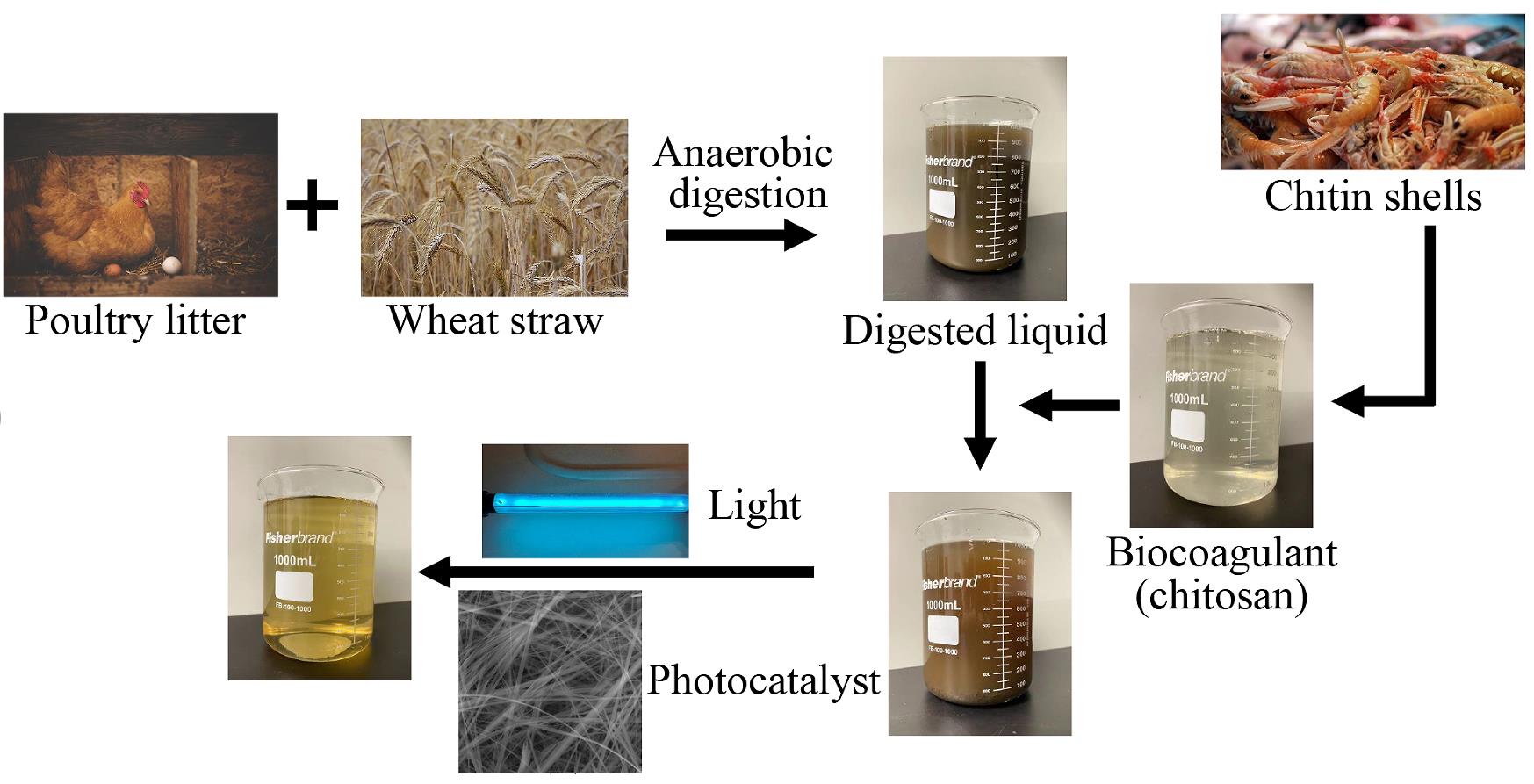| Sep 21, 2023 |
Innovative solution for poultry litter waste management using photocatalytic titanate nanofibers
(Nanowerk News) The shift away from using poultry litter for crop fertilization has transformed this once-valuable agricultural byproduct into an environmental liability for poultry producers. Addressing this challenge, a study led by Dr. Jun Zhu from the University of Arkansas offers an innovative approach using photocatalytic titanate nanofibers (TNFs) to degrade organic pollutants in anaerobic digestate, a byproduct of poultry litter.
|
|
The research has been published in the Frontiers of Agricultural Science and Engineering ("Degradation of organic pollutants in flocculated liquid digestate using photocatalytic titanate nanofibers: mechanism and response surface optimization").
|
 |
| Graphical abstract of the work.
|
|
The study specifically focuses on the use of TNFs, synthesized through a hydrothermal method, for the photocatalytic degradation of organic pollutants and color removal in poultry litter digestate. “We utilized Central Composite Design (CCD) and Response Surface Methodology (RSM) to optimize the conditions for removing volatile fatty acids (VFA) and chemical oxygen demand (COD), as well as for decolorization,” explained Yiting Xiao.
|
|
The study found that the optimal values for pH, dosage, VFA removal rate, COD removal rate, and decolorization rate were 6.752, 0.767 g·L−1, 72.9%, 59.1%, and 66.8%, respectively. “The results were consistent with the regression models generated by the CCD/RSM, confirming the effectiveness of TNFs in treating anaerobic digestate,” said Yiting Xiao.
|
|
Beyond offering a targeted solution for poultry litter digestate, the study also paves the way for broader wastewater treatment applications. “The implications of our research extend beyond poultry farming. The TNFs show promise for treating a variety of wastewater types,” emphasized Dr. Jun Zhu.
|
|
The team is already exploring further refinements and applications, including integrating this technology into existing agricultural waste treatment systems. “We are optimistic that ongoing research will make this process even more efficient, providing a robust and sustainable solution for managing anaerobic digestate,” concluded by Yang Tian. “The beauty of this process is its simplicity; it only requires light for activation, making it both environmentally friendly and cost-effective.”
|
|
This study represents a significant scientific advancement, offering a sustainable and efficient solution to a specific challenge in agricultural waste management. By providing a viable method for the degradation of organic pollutants in anaerobic digestate, this research marks a notable step forward in the pursuit of more sustainable agricultural practices.
|

